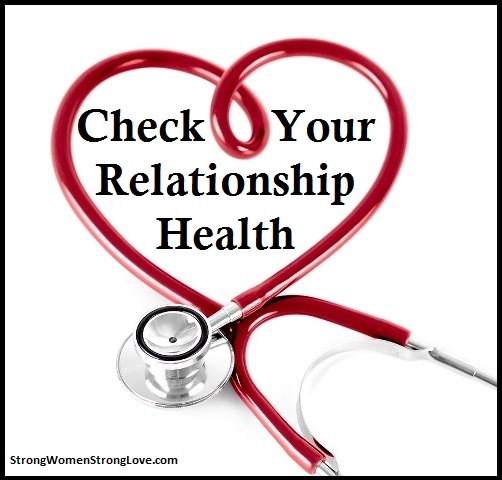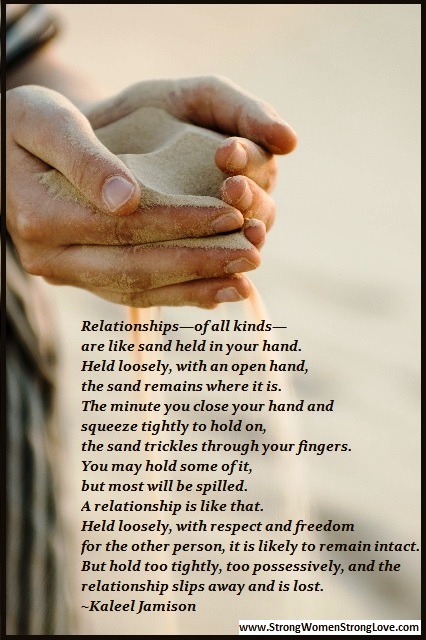by Strong Women Strong Love | May 14, 2017 | Passionate Partnership |

There are two times in a marriage when couples are most likely to split. The first comes around the seven-year mark. The second comes at around 12 years. Whether or not you’re near one of those milestones, it’s always good to monitor your relationship health. Here are a few tips to guide you through a marriage checkup.
Managing Conflicts
In the seven-year danger zone, splits happen because of conflicts. Not surprisingly, this time frame is when many couples are starting a family and dealing with all of the associated stresses. The warning sign in this time period isn’t how often you fight. It’s whether you fight the right way.
Specifically, look at whether your conflicts are characterized by Dr. John Gottman‘s “Four Horsemen.” Gottman gave these behaviors such a dramatic name because their constant presence in a marriage strongly predicts which couples will divorce.
The Horsemen are:
- Defensiveness
- Criticism
- Stonewalling
- Contempt
If you don’t like the behaviors you’re bringing to conflicts with your husband, you might need to cut yourself a break and focus on self-care. When we’re stressed (as most of us seem to be constantly), we get more controlling, rigid and judgmental in our relationships with others.
Staying Close
At 12 years, couples tend to split because they’re becoming alienated from each other. Again, our stressed and busy lives play a role. It can be tricky to nurture your relationship amid everything else you’re juggling, but it’s vital.
To keep your bond strong, consider questions like these.
- Is the amount of physical intimacy in your relationship satisfying for both of you? Your physical relationship strengthens your emotional relationship.
- Do you treat each other with the same consideration that you’d treat good friends?
- Do you take advantage of opportunities to show love and appreciation — such as greeting each other warmly after your work days?
- Do you practice deep listening (making eye contact, summarizing what the other said, etc.) with each other?
- Are you curious about each other? In other words, do you ask yourself questions like “He seems tense. I wonder what’s going on with him?” instead of leaping to conclusions?
Whether you’ve been married one year or 50 years, look through this blog for more tips and insights to improve the health of your marriage. Although your relationship may feel fine right now, doing a regular checkup can be an important part of keeping things on track.
by Strong Women Strong Love | May 20, 2013 | Excerpts from Strong Women Strong Love, Passionate Partnership, Quotes |

An excerpt from Strong Women, Strong Love:
In a relationship, it is important to have some capacity for flexibility. There are times when you and your partner need to lean on each other, like when you are ill. Other times, you are distant from one another because you are simply busy or need space. The level of closeness can also fall somewhere between the two.
When each person in a relationship has a strong sense of self, they can move into different stances based on their needs. Movement away is not viewed as a threat, and movement toward is not considered suffocating because each person is emotionally secure, generally self-reliant, and trusting.
The two most problematic stances in a relationship are Excessively Close and Emotionally Distant. If you have a weaker sense of self, you are probably driven by fear, which makes you prone to being too close or too distant. It is difficult for you to accept the fluid nature of a relationship, so you may not allow your relationship the breathing room and intimacy necessary to grow in a healthy manner. These two stances may manifest in the ways listed below:
Excessively Close (Needy/Clingy)
- Needing constant reassurance
- Feeling intense jealousy
- Being intrusive
- Making your partner the center of your universe
- Nurturing your spouse excessively, relating more like a mom than a partner
- Acting like a victim, doormat, or helpless person
- Refusing to do anything independently of your partner
- Not knowing what you need or want
- Ignoring all other relationships
Emotionally Distant (Emotional Strangers)
- Hiding your true thoughts and feelings from your partner
- Being so independent your partner feels unnecessary in your life
- Avoiding deep connection
- Ignoring your partner’s needs
- Showing little interest in the details of your partner’s life
- Spending all your time with other people or other activities, including work
- Avoiding relationship problems that need to be addressed
If you are regularly relating to your partner in any of these ways, it is important to ask yourself what unfulfilled needs or wishes are driving you.
Although women are encouraged to make men the center of their world, men usually find this too intense and withdraw. What works better is having a life of your own that you gladly share with one another. A strong sense of self gives you the flexibility essential to a healthy relationship.



